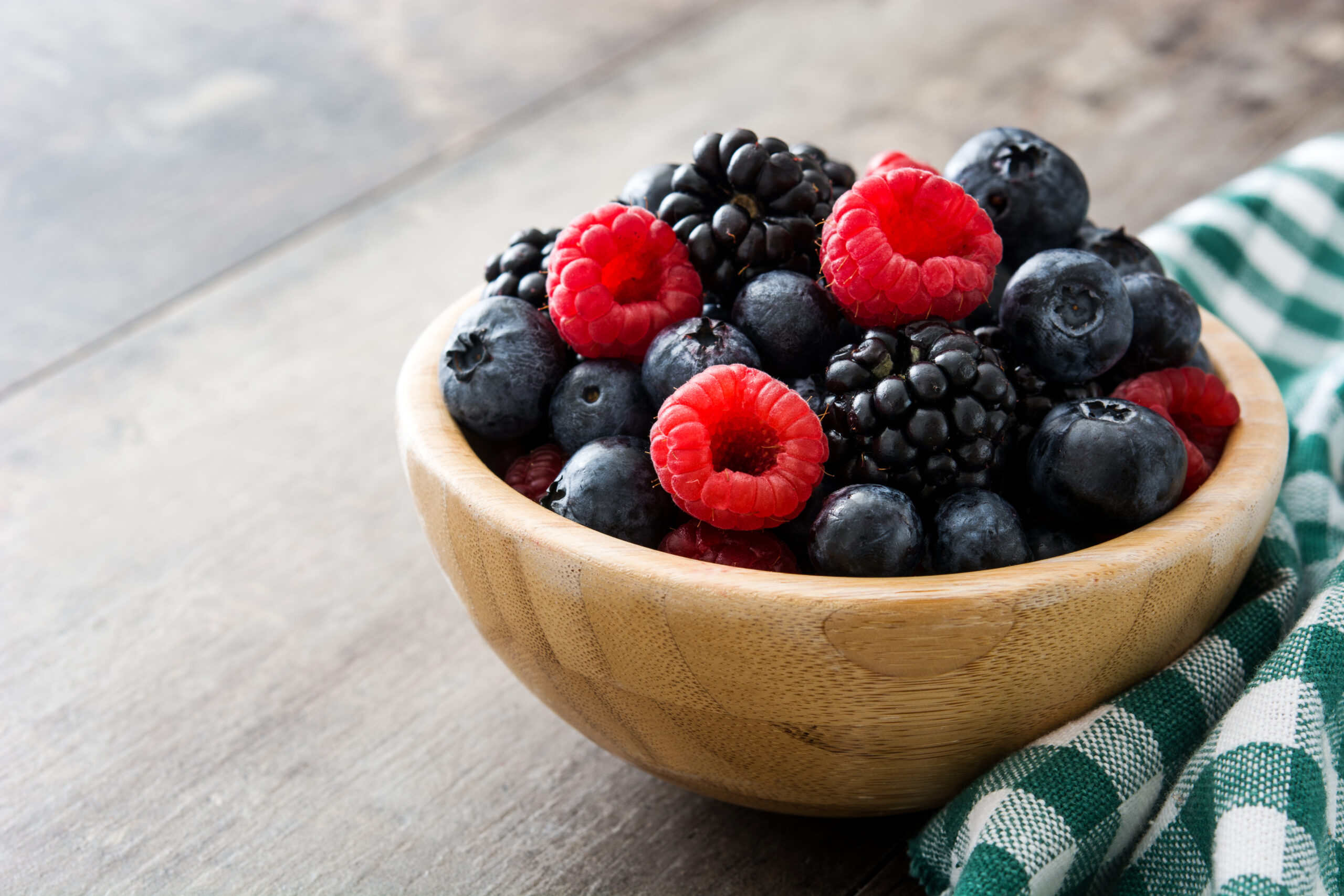
Berries are not only sweet and delicious but also packed with nutrients that support your health. Their versatility makes them easy to enjoy — whether tossed into salads, blended into smoothies, baked into treats, or eaten on their own. What truly sets berries apart is their high antioxidant content, which helps protect the body from cell damage and supports heart health.
Each type of berry offers its unique blend of beneficial plant compounds called phytonutrients. Dietitians recommend eating a mix of berries to get the most out of their health benefits. Fresh or frozen options are best, as dried berries contain more sugar and far fewer nutrients. Wondering which berries pack the biggest punch? Here are eight of the healthiest berries you can add to your diet.
Strawberries are more than just a sweet treat — they’re loaded with vitamin C, delivering nearly 100% of your daily needs in just one cup (144 grams). They also provide fiber, manganese, and powerful antioxidants.
Here’s how strawberries can support your health:
Studies also show that strawberry compounds may help improve antioxidant status and enhance the function of blood vessels, making them a delicious way to boost overall wellness.
Blueberries are a nutrient-packed favorite, offering fiber, vitamin C, vitamin K, and manganese — all in just one cup. But what truly sets them apart is their high level of anthocyanins, antioxidants that fight oxidative stress and support overall health.
Health benefits of blueberries include:
Whether fresh or frozen, adding blueberries to your meals is a simple, tasty way to protect both heart and brain health.
Açaí berries grow on palm trees in the Amazon and are often enjoyed as a frozen purée or in powdered form. A 100-gram serving offers around 60 calories and 3 grams of fiber, but their real strength lies in their antioxidant content.
Potential benefits of açaí berries include:
While lab and early human studies are promising, more research is needed to confirm açaí’s full impact on health. Still, their rich antioxidant profile makes them a nutritious addition to your diet.
Though not true berries, juniper berries are often treated as such due to their appearance and culinary use. These seed cones are rich in essential oils and known for their natural antiseptic and antioxidant properties.
Juniper berries may offer:
Their medicinal and culinary value makes them a distinct but worthy addition to your berry list.
Raspberries aren’t just delicious in desserts — they’re also a great source of nutrients, especially fiber. One cup (123 grams) delivers 8 grams of fiber, along with vitamin C, vitamin K, and manganese.
Here’s what raspberries can do for your health:
Whether fresh or frozen, raspberries make a smart, flavorful addition to a healthy diet.
Goji berries, or wolfberries, have been used in traditional Chinese medicine for centuries, and modern science is starting to catch up. Just one ounce (28 grams) of dried goji berries offers fiber, iron, vitamin C, and a whopping 42% of your daily vitamin A needs.
Key health benefits of goji berries include:
Research also suggests they may help reduce the risk of age-related macular degeneration and even fight oxidative damage at the cellular level.
Bilberries, often called European blueberries or huckleberries, are nutrient-dense berries rich in antioxidants, especially anthocyanins. A 100-gram serving provides vitamin C, fiber, and a remarkable 143% of your daily manganese needs.
Potential health benefits of bilberries include:
Though some studies are still limited, early research suggests bilberries may have powerful protective effects for the heart, eyes, and immune system.
Known for their sharp flavor, cranberries are often enjoyed as juice or sauce. One cup of raw cranberries offers fiber, vitamin C, and manganese, along with antioxidant polyphenols that support overall health.
Key health benefits of cranberries include:
Cranberry juice retains fewer polyphenols than raw berries, but improved processing methods are helping close the gap. For best results, choose 100% juice with no added sugar.
Grapes: Juicy, Sweet, and Full of Antioxidants
Grapes are one of the most widely consumed fruits, enjoyed fresh, dried, or as juice and wine. One cup (151 grams) provides vitamin K, vitamin C, and a modest amount of fiber, but their real power lies in the antioxidant compounds found in their skins and seeds.
Whether eaten fresh or in juice form, grapes offer a sweet way to support overall wellness — just be mindful of added sugars in processed versions.
Mulberries are a lesser-known berry with impressive nutritional value. They’re high in unsaturated fatty acids — the “good” fats, which may help manage cholesterol and support heart health. They also provide a solid dose of immune-boosting vitamin C, along with calcium, potassium, and magnesium, key electrolytes that aid muscle and nerve function.
Why add mulberries to your routine?
Due to their short shelf life, mulberries are usually sold dried or powdered, making them easy to incorporate into everyday meals and snacks.
Berries are not only delicious but also packed with nutrients that support heart, brain, and immune health. Including a variety of these superfruits in your diet is a simple way to boost overall wellness, one tasty bite at a time.